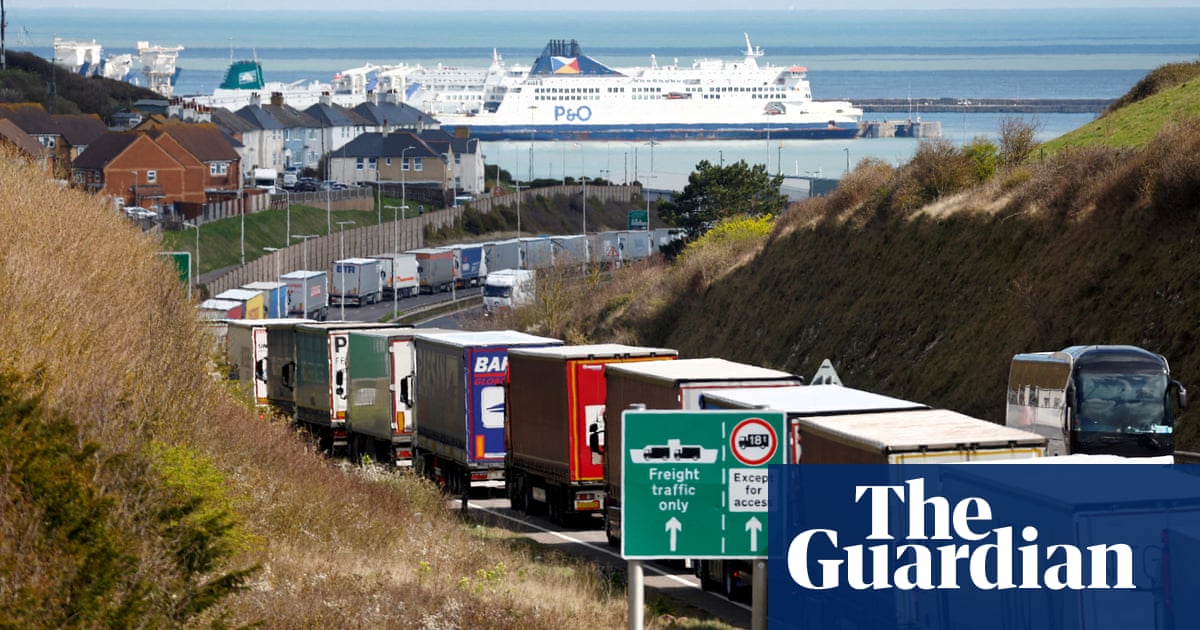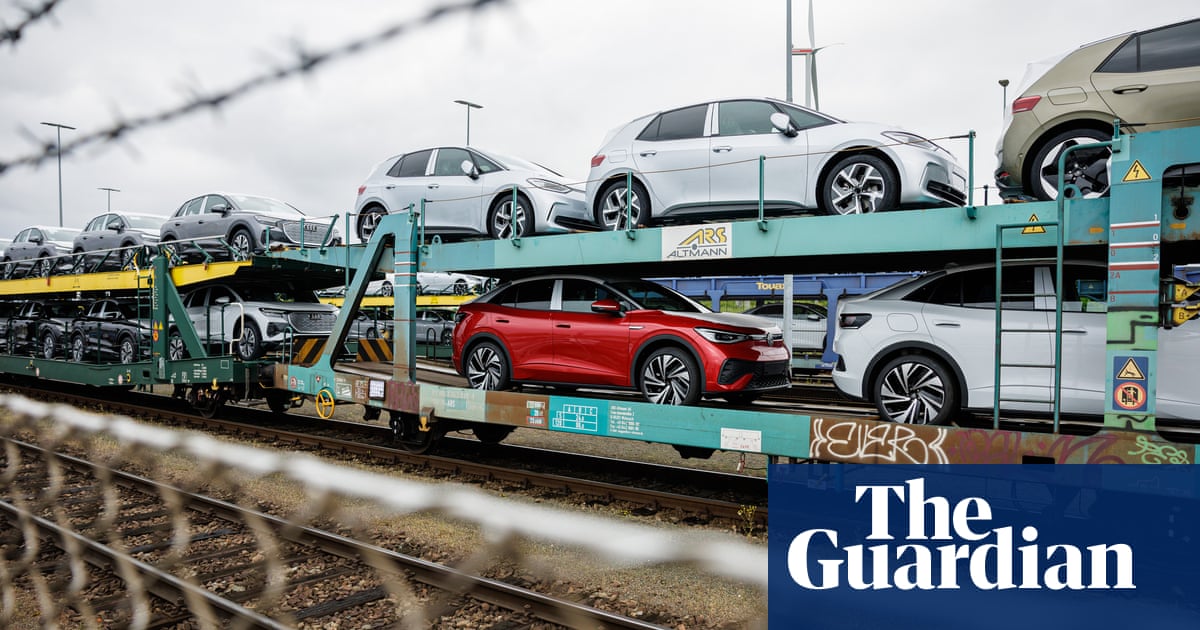
The volume of exports going through British ports to the EU fell by a staggering 68% last month compared with January last year, mostly as a result of problems caused by Brexit, the Observer can reveal.
The dramatic drop in the volume of traffic carried on ferries and through the Channel tunnel has been reported to Cabinet Office minister Michael Gove by the Road Haulage Association after a survey of its international members. In a letter to Gove dated 1 February, the RHA’s chief executive, Richard Burnett, also told the minister he and his officials had repeatedly warned over several months of problems and called for measures to lessen difficulties – but had been largely ignored.
In particular he had made clear throughout last year there was an urgent need to increase the number of customs agents to help firms with mountains of extra paperwork. The number now, around 10,000, is still about a fifth of what the RHA says is required to handle the massive increase in paperwork facing exporters.
Burnett told the Observer that in addition to the 68% fall-off in exports, about 65%-75% of vehicles that had come over from the EU were going back empty because there were no goods for them to return with, due to hold-ups on the UK side, and because some UK companies had either temporarily or permanently halted exports to the EU. “I find it deeply frustrating and annoying that ministers have chosen not to listen to the industry and experts,” he said.
Contact with Gove had been limited and had achieved little over recent months. “Michael Gove is the master of extracting information from you and giving nothing back,” he said. “He responds on WhatsApp and says he got the letter but no written response comes. Pretty much every time we have written over the last six months he has not responded in writing. He tends to get officials to start working on things. But the responses are a complete waste of time because they don’t listen to what the issues were that we raised in the first place.”
According to the House of Commons library, UK exports to the EU were £294bn in 2019 (43% of all UK exports) while UK imports from the EU were £374bn (52% of the total). The overwhelming majority of exports to the EU from the UK go through ports rather than by air.
Richard Ballantyne, chief executive of the British Ports Association, said the 68% figure sounded “broadly in line” with his impressions of the drop-off in traffic. He said some but not all of the problems with extra paperwork that caused delays could be overcome in time, although he warned some businesses on both sides would look for new markets rather than try to deal with the added friction. Ballantyne also predicted a new set of difficulties in months to come as the infrastructure needed at the point when the UK introduces full import checks on goods from the EU on 1 July would not, in his view, be ready in time. This raised the prospect of a whole new set of issues affecting imports.
As part of the Brexit arrangements, the government decided to offer a six-month grace period, meaning the full range of physical checks would not be needed on imports until July.
Trade experts said part of the reason for the sharp fall in exports was the coincidence of Brexit and the pandemic. But several heads of trade bodies fear worse is to come. Shane Brennan, chief executive of the Cold Chain Federation, the body for companies that move and store frozen and chilled foods, said: “As we look to April through to July what really worries me is we face a perfect storm.
“We will have an economy looking to come out of lockdown at the same time as the UK is imposing a range of import controls on EU business that may be no more prepared than UK businesses have been – and possibly less so – and a supply chain that is incredibly reluctant to service the UK. The full Brexit crisis that we were predicting could well come into effect at that point.”
In recent weeks hundreds of UK companies have decided either to halt exports to the EU or to set up warehouses or subsidiaries within the EU so they can distribute goods more easily. Ministers say most of the Brexit-relating issues facing businesses are “teething problems”, although Michael Gove has accepted that those affecting Northern Ireland are more serious.
A government spokesperson said: “We have had intensive engagement with the road haulage industry for many months and are still facilitating a daily call with representative groups.
“We do not recognise the figure provided on exports. Thanks to the hard work of hauliers and traders to prepare for change, disruption at the border has so far been minimal and freight movements are now close to normal levels, despite the Covid-19 pandemic.
“We will continue to work constructively with the RHA as we adjust to our new relationship with the EU and seize the opportunities of Brexit.”












